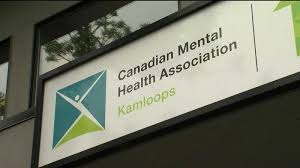Written by Diego Machado
Health professionals and mental health and addiction counselling organizations are questioning the B.C. provincial government’s announcement that involuntary care services in B.C. would be expanded. The BC Division of the Canadian Mental Health Association released a newsletter in response to the announcement, urging the provincial government to be cautious with expanding an already struggling involuntary care program over voluntary mental health services to address the addiction crisis in B.C.
Public sentiment on B.C. Premier David Eby’s September 15, 2024 announcement that the province would expand involuntary care services in B.C. by renovating and updating two secure care facilities—one for patients from the criminal justice system and one for those apprehended under the Mental Health Act—and adding 400 new hospital-based beds.
Many parents who lost their children to battles with addiction or mental health issues are advocating for the effectiveness of these services. However, members of the public and healthcare professionals are concerned about the expansion, because the effectiveness and current operating state of involuntary care are questionable at best.
At the September press conference, Premier David Eby said, “People with addiction challenges, brain injuries and mental health issues need compassionate care and direct and assertive intervention to help them stabilize and rebuild a meaningful life.” He elaborated on the context of expanding the current involuntary care service as the next step in the provincial government’s response to the ongoing addiction crisis.
According to the Office of the Premier, the first correctional center will be at the Surrey Pretrial Services Centre, and the first secure housing and care facility will be on the grounds of the Alouette Correctional Centre in Maple Ridge. At the time of writing, the provincial government hasn’t clarified an expected timeline for the renovations.

photo courtesy of The Globe and Mail. https://www.theglobeandmail.com/canada/article-bc-to-introduce-involuntary-care-for-people-with-addictions-premier/l News.
The government’s official digital press release on its website echoes support for this expansion of involuntary care services from Grace George, Jen Thomas, and Wayne Sparrow, the chiefs of the Katzie and Tsleil-Waututh Nations and the Musqueam Indian Band, respectively. Ken Sim and Dan Ruimy, the Mayors of Vancouver and Maple Ridge also voiced support for the expansion announcement.
“This is an incredibly profound first step in addressing the mental health and addiction crises that Vancouverites and British Columbians have been grappling with,” said Ken Sim, in the release. “As we embark on this new chapter with mandatory care, we are extending a lifeline to those who need it most. We thank Premier Eby and all those involved for their work to make our communities safer for everyone.”
However, the British Columbia division of the Canadian Mental Health Association (CMHA) released a newsletter three days later questioning the validity and credibility of expanding involuntary care services.
Alfred Achoba, executive director of the Kamloops branch of the CHMA, says that involuntary care services are crucial and beneficial, and believes this expansion will have an impact on places like Kamloops that are struggling with the addiction crisis. However, he also shares the concerns of the CMHA B.C. newsletter.
“I have concerns, like many other professionals around the expansion and reasons behind (the announcement),” he said.
He says his reasoning has to do with two things: whether or not they are giving care with compassion, and whether the data on involuntary care shows that it fulfills the purpose it exists to serve. He doesn’t believe either of these are up to standard.
“(In) hindsight, I think there’s so much work that should have been done before that news was released. And I think the province is probably now trying to respond to some of the concerns that have been raised.”
He also expressed that the cost of this expansion, which the province has not stated, could be better used to increase the operational capacity of voluntary care services in places like Kamloops.
Achoba and the B.C. CMHA believe that voluntary services should be better funded and maintained as a form of preventative care. This would alleviate the pressure of a rising addicted population in B.C. on the involuntary care system, allow for more thorough and compassionate care for those struggling with addiction, and hopefully restore trust in the system itself.
“A key part of the public concern is looking at the level of support we have now for voluntary care, the lack of support, the lack of funding,” he said. “Kamloops alone, we only have 10 detox beds. So when people are struggling with their mental health, you’re just going to lock them up knowing fully well the government hasn’t met their needs when it comes to funding those programs.”
“I think it is a bit alarming, and we need to do more of a reflection on the existing services and supports we have. Do we have enough? The answer is no.”
According to the B.C. CMHA, B.C. already has the highest apprehension rate for individuals under the Mental Health Act out of all provinces in Canada, at 30,000 apprehensions of around 20,000 individuals.
According to a peer-reviewed medical analysis of B.C.’s involuntary care system in the Canadian Journal of Psychiatry from 2022, the largest group of these apprehensions are people with substance use disorder. This is the fastest-growing population being detained under B.C.’s Mental Health Act.
The B.C. CMHA also emphasizes this analysis’ criticisms of the accessibility of existing voluntary mental health and addiction services, maintaining that the province is leaning on involuntary care to deal with the mental health and addiction crises, and neglecting their responsibility to voluntary care services as a form of prevention.

photo courtesy of Q101
The Newsletter states, “Over the last two decades, there has been a dramatic increase in reliance on involuntary services, while voluntary services have not kept up with demand… Without addressing root causes and interrogating the gaps and failings of the current system, even with involuntary care, people will be released back into community without the necessary supports needed to help them on their journey to wellness. The cycle will continue.”
In addition, the newsletter expresses concern over the current levels of oversight and accountability for the mental health system in B.C., and that this expansion of the involuntary care system, “will not lead to positive or dignified outcomes for people.”
Darren Gulka, a psychiatric nurse with almost 30 years of experience working in mental health and substance abuse, said that the method of care for patients struggling with severe addiction and mental health issues is at the discretion of the doctor overseeing their care, and would involve isolation chambers or torso restraints.
“It needs to be ordered by a physician to make it happen. It’s not like regular staff in inpatient psychiatry could decide to put someone in a seclusion room or put restraints on them,” he said. “They would have to get a doctor’s order, and usually, they’re concerned that somebody might harm themselves or harm somebody else.”
Gulka also thinks that there are methods that are proven to be more effective when dealing with an addiction than involuntary care such as Portugal’s model, which legalized all drug use and treated addiction the same way the medical system would treat a disease.
“The Portugal model was phenomenal and did well, and is not doing well now. It’s because they made a bunch of cutbacks after everything was doing well. What they showed is that after decriminalizing personal use of substances, they also put in all the resources to allow people to have access to housing, training for work, funding, whatever they could throw at them resource-wise to help them. And it just, it did phenomenal.”
Referencing the CMHA newsletter and the cited journal article, Gulka said he believes that the public and entities like the CMHA, who are partnered with the provincial government and Interior Health and work closely with them, should be more involved in the process of decisions like the involuntary care expansion. “We worked very closely with the CMHA, they have a contract with Interior Health. I would support CMHA B.C..” said Gulka.
For more information on the B.C. Government’s involuntary care announcement, view the full digital press release here:
https://news.gov.bc.ca/releases/2024PREM0043-001532
To read the B.C. CMHA Newsletter, click here:
https://bc.cmha.ca/news/involuntary-care-in-bc/